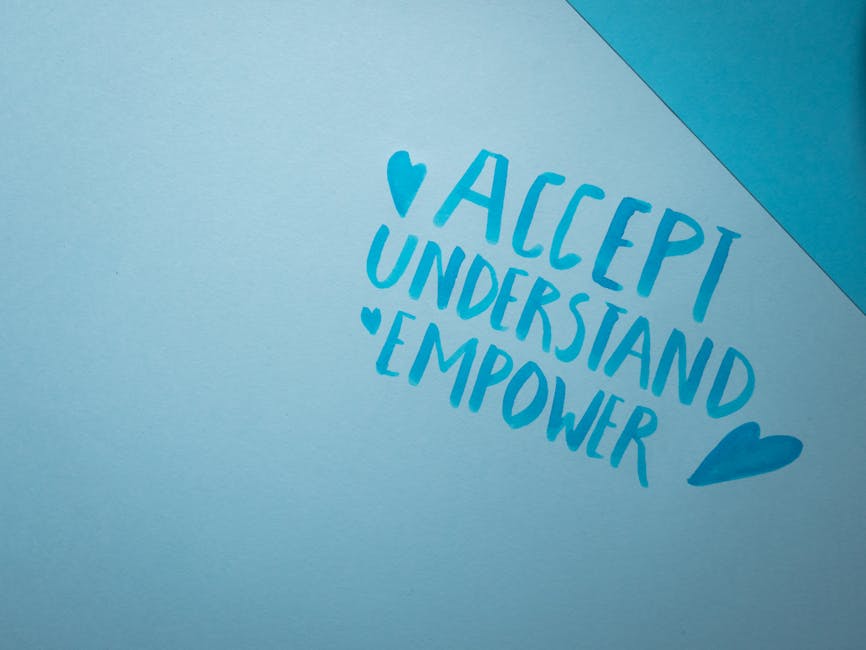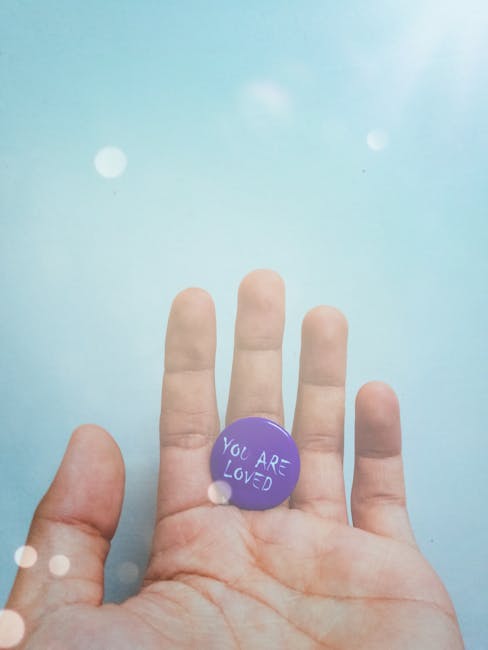Turning self-doubt into self-discovery might sound like turning lemons into lemonade, but it’s entirely possible—and incredibly rewarding. Self-doubt, while uncomfortable, is often the first step toward understanding yourself better. If you’ve ever felt stuck in a loop of second-guessing, this guide will help you transform that uncertainty into a journey of growth and self-awareness. Keep reading to learn how to embrace your doubts and use them as stepping stones to uncover your true potential.
Key Takeaways
- Self-doubt often stems from internal fears and external pressures.
- It can hinder personal growth but also spark self-awareness and resilience.
- Strategies like shifting perspectives, practicing gratitude, and seeking support can help overcome self-doubt.
- Embracing individuality and self-acceptance are crucial for long-term growth and fulfillment.
Understanding Self-Doubt
Definition and Causes of Self-Doubt
Self-doubt is that nagging voice in your head that questions your abilities, decisions, or worth. It’s like an uninvited guest at a party, always pointing out what could go wrong. But where does it come from?
Internal Factors: Fear of Failure and Perfectionism
Sometimes, self-doubt is born from within. Fear of failure can paralyze you, making every decision feel like a potential disaster. Perfectionism adds fuel to the fire, convincing you that anything less than flawless isn’t good enough. These internal pressures can create a mental tug-of-war that’s exhausting to navigate.
External Influences: Societal Expectations and Criticism
Other times, self-doubt is planted by external forces. Society often sets unrealistic standards, whether it’s about career success, appearance, or relationships. Add in criticism from others—whether constructive or not—and it’s easy to see why self-doubt thrives.
The Impact of Self-Doubt on Personal Growth
Hindrance to Embracing Individuality
When you’re consumed by self-doubt, it’s hard to celebrate what makes you, well, you. Instead of embracing your quirks and talents, you might try to fit into a mold that doesn’t feel right.
Limitation of Potential and Opportunities
Self-doubt can also act like a roadblock, preventing you from seizing opportunities. It whispers, “You’re not ready,” or “You’re not good enough,” keeping you stuck in your comfort zone. But here’s the thing: growth rarely happens in comfort zones.

The Connection Between Self-Doubt and Self-Discovery
How Self-Doubt Can Be a Catalyst for Growth
Encouraging Introspection and Self-Awareness
Believe it or not, self-doubt can be a gift in disguise. It forces you to pause and reflect, asking questions like, “Why do I feel this way?” or “What’s holding me back?” This kind of introspection is the foundation of self-awareness, a key ingredient in personal growth. For more on this, check out techniques for enhancing self-awareness.
Identifying Areas for Improvement and Resilience
Self-doubt also shines a spotlight on areas where you can grow. It’s like a mirror, showing you both your strengths and weaknesses. By addressing these areas, you build resilience and confidence over time.
The Role of Challenges in Shaping Self-Identity
Learning from Failures and Setbacks
Every failure is a lesson in disguise. When you face setbacks, you’re given a chance to learn, adapt, and grow. Think of it as a plot twist in your life story—unexpected, but essential for character development.
Building Confidence Through Overcoming Obstacles
Each time you overcome a challenge, you prove to yourself that you’re capable. This builds confidence, which is the antidote to self-doubt. It’s like climbing a mountain: every step makes you stronger and more prepared for the next.

Strategies to Overcome Self-Doubt
Shifting Perspectives on Perceived Weaknesses
Embracing “Sideways Angles” as Strengths
What if your so-called weaknesses were actually strengths in disguise? For example, being overly cautious might mean you’re thoughtful and detail-oriented. By reframing your perspective, you can turn self-doubt into self-acceptance.
Redefining Societal Norms and Expectations
Society doesn’t get to define your worth—you do. Challenge the norms that make you feel inadequate and create your own standards for success.
Developing a Positive Mindset
Practicing Self-Compassion and Gratitude
Be kind to yourself. Instead of focusing on what you lack, celebrate what you have. Gratitude can shift your mindset from scarcity to abundance, helping you see the bigger picture. For more tips, explore the impact of journaling on self-discovery.
Focusing on Personal Achievements and Progress
Keep a record of your wins, big or small. This not only boosts your confidence but also reminds you of how far you’ve come.
Seeking Support and Guidance
Building a Supportive Network of Friends and Mentors
Surround yourself with people who uplift and inspire you. A strong support system can act as a safety net when self-doubt threatens to pull you down.
Utilizing Professional Help When Necessary
Sometimes, self-doubt runs deep. In such cases, seeking professional guidance can provide clarity and tools to move forward. Remember, asking for help is a sign of strength, not weakness.

Embracing Individuality in the Journey of Self-Discovery
Recognizing and Celebrating Unique Qualities
Understanding Personal Values and Passions
What lights you up? What makes you lose track of time? These are clues to your true self. By identifying your values and passions, you can align your life with what truly matters.
Accepting Differences as Strengths
Your differences aren’t flaws—they’re features. Embrace them, and you’ll find that they’re often your greatest assets.
The Role of Self-Acceptance in Personal Growth
Letting Go of Comparison and Judgment
Comparison is the thief of joy. Instead of measuring yourself against others, focus on your own journey. After all, no one else has walked in your shoes.
Cultivating Authenticity and Self-Expression
When you accept yourself, you give others permission to do the same. Authenticity is contagious, and it starts with you.

Real-Life Examples of Turning Self-Doubt into Self-Discovery
Stories of Resilience and Personal Growth
Overcoming Societal Pressures to Embrace Individuality
Take inspiration from those who’ve turned their struggles into strengths. For instance, this personal journey highlights how resilience can transform self-doubt into success.
Transforming Perceived Faults into Strengths
Many successful people started by embracing what made them different. Their stories remind us that self-doubt is often the first chapter of a success story.
The Impact of ADHD and Other Challenges on Self-Perception
Understanding the Unique Perspective ADHD Brings
ADHD, for example, can feel like a challenge, but it also offers a fresh perspective. As this article explains, embracing these differences can lead to incredible self-discovery.
Using Self-Awareness to Foster Growth and Success
By understanding your challenges, you can turn them into opportunities for growth. Self-awareness is the key to unlocking your potential.
The Long-Term Benefits of Self-Discovery
Building Confidence and Self-Esteem
Developing a Stronger Sense of Self-Worth
When you know who you are, self-doubt loses its grip. Confidence comes from within, and it grows with every step you take toward self-discovery.
Achieving Personal and Professional Goals
Self-discovery isn’t just about feeling good—it’s about doing good. By understanding your strengths and values, you can set and achieve meaningful goals.
Living a Fulfilled and Authentic Life
Aligning Actions with Personal Values
When your actions align with your values, life feels more meaningful. It’s like finding the missing piece of a puzzle.
Inspiring Others Through Authenticity and Resilience
Your journey doesn’t just impact you—it inspires others. By embracing your true self, you encourage others to do the same.

Self-doubt may feel like a storm cloud, but it often carries the rain needed for growth. By embracing your doubts and turning them into opportunities for self-discovery, you can uncover a version of yourself that’s confident, resilient, and authentically you. Ready to take the first step? Start by exploring steps to find meaning and purpose in life.
FAQ: Transforming Self-Doubt into Self-Discovery – Your Path to Confidence and Growth
What does it mean to turn self-doubt into self-discovery?
Turning self-doubt into self-discovery involves reframing negative thoughts about yourself into opportunities for growth and learning. Instead of letting doubt hold you back, you use it as a tool to better understand your strengths, weaknesses, and potential for improvement.
Why is self-doubt a common experience?
Self-doubt is a natural part of being human. It often stems from fear of failure, comparison to others, or past experiences. While it can feel uncomfortable, it’s also a sign that you care about your goals and want to succeed.
How can I identify the root causes of my self-doubt?
To identify the root causes, reflect on situations where you feel doubtful. Ask yourself if it’s linked to fear, past failures, or external pressures. Journaling or speaking with a trusted friend or therapist can help uncover these underlying triggers.
What are some practical steps to overcome self-doubt?
Practical steps include challenging negative self-talk, setting realistic goals, celebrating small wins, and surrounding yourself with supportive people. Practicing mindfulness and focusing on your progress rather than perfection can also help.
Can self-doubt ever be beneficial?
Yes, self-doubt can be beneficial when it pushes you to reflect, learn, and grow. It can motivate you to prepare thoroughly, seek feedback, and improve your skills, ultimately leading to personal and professional development.
How does self-discovery improve confidence?
Self-discovery helps you understand your unique strengths, values, and passions. This deeper self-awareness builds confidence by allowing you to trust your abilities and make decisions that align with your authentic self.
What role does self-compassion play in this process?
Self-compassion is crucial because it allows you to treat yourself with kindness during moments of doubt. Instead of being overly critical, you learn to accept imperfections and focus on growth, which fosters resilience and self-belief.
How can I maintain self-discovery as a lifelong journey?
To maintain self-discovery, stay curious and open to learning. Regularly reflect on your experiences, set new goals, and adapt to changes in your life. Embrace challenges as opportunities to grow and continue exploring your potential.
Are there tools or practices that can aid in self-discovery?
Yes, tools like journaling, meditation, personality assessments, and therapy can aid in self-discovery. These practices help you gain clarity about your thoughts, emotions, and aspirations, making it easier to navigate self-doubt.
What is the connection between self-doubt and personal growth?
Self-doubt and personal growth are interconnected because doubt often signals areas where growth is possible. By addressing your doubts and stepping out of your comfort zone, you can achieve breakthroughs and unlock new levels of self-awareness and confidence.



